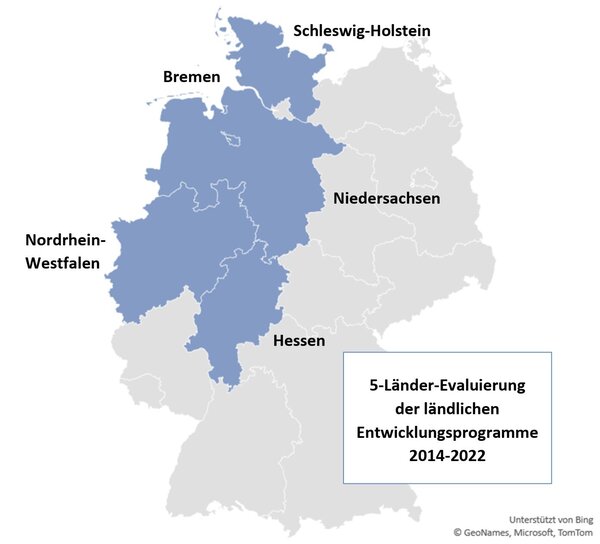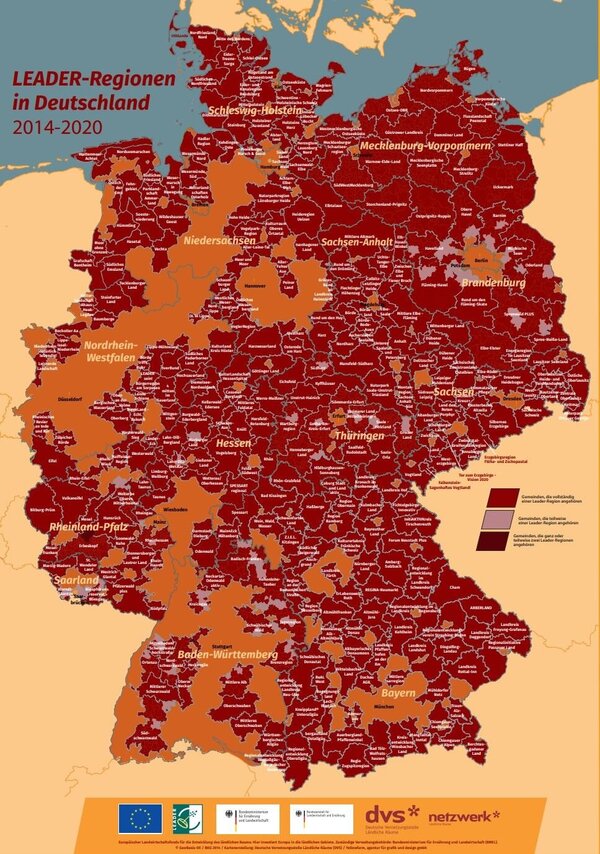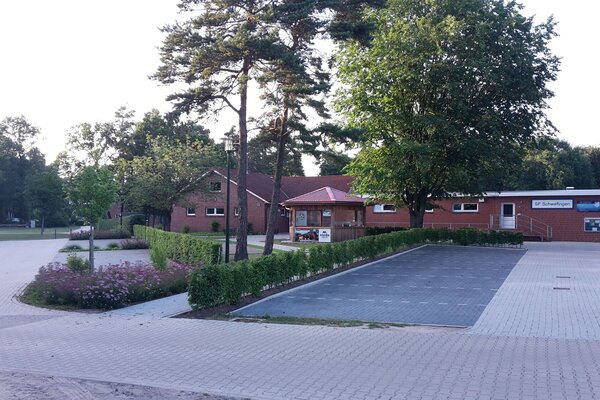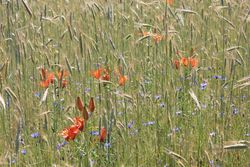Dossier
Rural development policies
Stefan Becker, Regina Grajewski, Lynn-Livia Fynn, Heike Peter und Kim Pollermann
Rural development policies aim at improving living conditions in rural areas by promoting basic services, economic activities and social participation. Public funding is available for a variety of projects: From local development concepts to small and large infrastructure measures to regional budgets for micro-projects.
![[Translate to English:] Mehrgenerationenhaus, gefördert im Rahmen der Gemeinsamen Agrarpolitik der Europäischen Union](/media/_processed_/7/4/csm_Mehrgenerationenhaus_4372e134e7.jpg)
The architecture of German rural development policy is quite complex. A large part of the funding is provided through rural development programs, which are designed and financed not only by the primarily responsible federal states (Länder) but also by the federal government and the EU. The “Joint Task for the Improvement of Agricultural Structures and Coastal Protection", jointly managed by the federal government and the Länder, is another important funding instrument for rural development. There are also measures that are financed solely by the Länder. In addition to these mainstream instruments, pilot projects help to initiate learning processes or test new instruments. Primary beneficiaries of rural development support are municipalities, but private actors can also receive funding.
Our work aims at generating knowledge for the further development of rural development policies. On the one hand, fundamental research on living conditions in rural areas can support decisions about the general direction of funding instruments. On the other hand, evaluation and applied research can help make rural development funding more effective and efficient.
The Thünen Institute has been playing a leading role in the evaluation of rural development programs in Germany for many years. For the 2014-2022 funding period, we evaluate the programs of Schleswig-Holstein, Lower Saxony and Bremen, North Rhine-Westphalia and Hesse.
The evaluation project assesses whether the programs’ public funds are spent effectively and efficiently. We examine to what extent the program goals have been achieved and whether this could have been done in a less costly way. This assessment includes questioning the justifications and goals of each public intervention: What exactly are the problems that are to be addressed? Can the chosen measures contribute to solving the problem? What other support instruments are available?
The evaluation project also aims at improving the programs. With our knowledge of relationships between and effects of relevant instruments, we can derive evidence-based recommendations for their reform.
As regards rural development, the focus of the project lies on village development (including both concepts and investments), LEADER and basic services. Support for cultural heritage sites, tourism and cooperation (outside of LEADER) are also considered, as are effects of other projects, such as investments in agricultural infrastructure.
Further information, including evaluation reports (in German), is available at www.eler-evaluierung.de.
LEADER, an acronym of the French phrase “Liaison entre actions de développement de l'économie rurale” meaning “Link between actions for the development of the rural economy“, is an approach to support rural stakeholders in promoting regional development based on the regions’ various potentials. In particular, it seeks to strengthen cooperation between local governments, civil society and local businesses. LEADER plays an important role in rural development: There are 321 LEADER regions in Germany in the 2014-2022 funding period, and the planned public funding amounts to around two billion euros.
The current LEADER regions mostly range from 30,000 to 150,000 inhabitants. The boundaries are defined by the stakeholders involved and must not necessarily correspond to specific administrative borders. What is important is that there are links and commonalities between the participating municipalities, brought about, for example by being part of a larger natural area or sharing socio-cultural traditions.
In order to qualify as a LEADER region, interested actors must first develop an integrated development strategy for their region, which specifies goals and corresponding fields of action. Regions with promising development strategies are then recognized as LEADER regions, with the selection process taking place at federal state level.
LEADER regions have their own budget: depending on the state and the region’s size, they receive between 2 and 14 million euros in EU funds (in some cases supplemented by state funds) for approximately seven years. As a rule, further public funding from the region is also required, for example from municipalities that co-finance the EU funds. A local action group (LAG) decides on the projects to be funded from the LEADER budget. It is made up of representatives from municipalities, the business sector and civil society. The latter two groups must make up at least 50 percent of the members of the decision-making body.
In all LEADER regions, the local action group is given technical support by a management body referred to as the LAG management and sometimes additionally by a field office. The staff of the LAG managements/field offices as well as public relations work or measures to activate larger groups of the local population are also supported from EU funds.
The local action groups can decide on the thematic priorities set on the basis of specific regional needs. Emphasis is often laid on tourism, village renewal, basic services and climate protection. Cooperation projects, in which several LEADER regions work together, are also possible.
Typical LEADER projects are the construction, restoration and repair of community buildings and public places, such as churches, recreational homes and sports fields, the maintenance and development of tourism infrastructure, such as cycling and hiking trails or museums and information services, as well as cultural facilities. Other frequent objects of LEADER funding are citizens' buses, village stores, businesses, educational projects as well as the development of concepts, plans and studies with different thematic priorities.
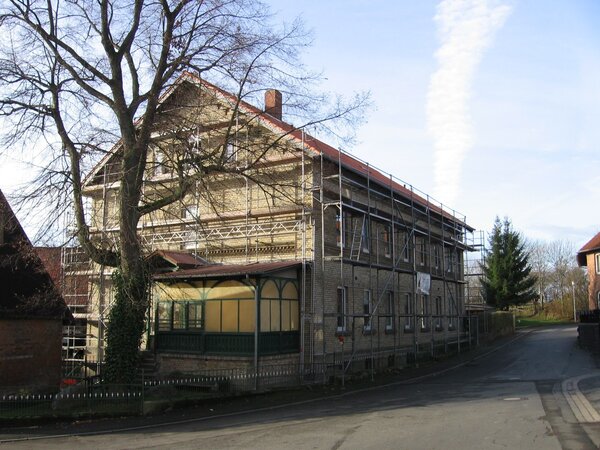
Germany has a long tradition of supporting village renewal and development with public funds. The focus has changed in recent decades, from large-scale restorations to more gentle development aimed at the maintenance and preservation of the existing infrastructure.
The support was originally designed to stimulate the local economy, especially local craftsmanship. Today’s greatest challenges for villages are related to demographic change and its consequences: Vacancies in village centers, under-used infrastructure and the changing housing needs of a steadily aging population.
Support for village renewal and development aims at maintaining the diversity and sustainability of village lifestyles as well as preserving the functions of small settlements. For these purposes, infrastructure and public facilities must be adapted. Against the backdrop of demographic change, inner village development, sustaining the provision of basic services and strengthening civic engagement are crucial.
The portfolio of support measures corresponds with the broad objectives of village development: Eligible for funding are, on the one hand, creative works on village buildings and public places, the conversion of former agricultural buildings as well as infrastructural and social facilities. Deconstruction, i.e. the demolition of buildings, is also possible. On the other hand, support is available for village development concepts and plans, which are drawn up with the participation of the villagers, as well as for construction-related consulting. Beneficiaries can be municipalities, churches or associations, but also private owners who wish to renovate and thus preserve their residential buildings in line with historical and local standards.

